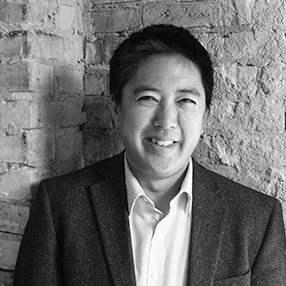Insurrecto
for David Fagen
Corporal, U.S. Army (1898-1899); Captain, Philippine Republican Army (1899-1901)
Our worst enemy is General May:
rainy season, the lieutenant means, monsoon
much like Tampa’s summer storms. Roads become marsh;
not just flooding but fever, a fire
that hollows me out. We throw lifelines
to overturned ferries; casualties grow long.
Incessant drizzle. Letters take too long
to reach home. I prefer carousal, cards: dismay
in officers’ faces when I cross the line.
The guardhouse my second home. My fines soon
add up: a month’s pay. Most of it earned, so far,
by killing time, not ladrones: we march
to summits, spy gugus drilling below; march
back down to find the enemy long
gone—only grinning farmers left. Hellfire
spits the lieutenant, scanning ridges, amazed
to have been rolled by shoeless bandits again. Soon
he’ll snap, like the officers in Samar who lined
up boys young as ten—sympathizers, aligned
with insurgents. (So said General Smith.) Marshaled
them, blindfolded, to clearings. Too soon
for them to swell the soil; long
rest for short lives. Their will bewilders me—
faced with Gatlings, Krags, methodical shellfire
they ambush hand to hand. Bolos; sniper fire
in enfilades. Harass our lines
then beat back to boondocks, a maze
of jungle, cordilleras, rice fields, marsh.
Land surely rich with poetry—tulang
in their tongue—land like home: typhoon
cousin to hurricane. When the monsoon
shifts, so do I—I snap, desert for foreign fires.
Rope can kill black soldiers but not disease, lungs
like ours grittier, the C.O.s say; we’re maligned
but nicknamed “Immunes.” My old unit marches,
black against brown. Under white. As if to make
the Far East a second South. I captain a line
for the Filipino side: a turncoat, merging
nations. Our flag has no color. Soon it may.
Copyright © 2022 by Chris Santiago. Originally published in Poem-a-Day on January 19, 2022, by the Academy of American Poets.
“‘Insurrecto’ is part of a manuscript I’m working on that explores the forgotten Philippine American War (1899–1902), which is sometimes called ‘the First Vietnam.’ David Fagen was an African American soldier who deserted and joined the Filipino side, and rose to the rank of captain. The sestina is not a form I’d worked with, but something about it seemed to suit the hurry-up-and-wait of guerrilla warfare. The repetition of end words allows the words to be reimagined; it allows them to carry subversive meanings while wearing the disguise of familiar sounds. Like Fagen, the words can find new purpose.”
—Chris Santiago

